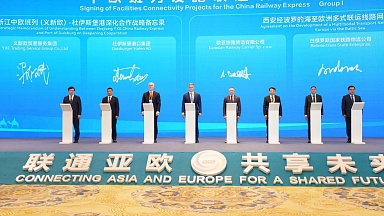At the beginning of August, for example, Landry Fotso, COO of the Italian Society for Import Export (SIIE) said that some economic benefits did come after joining the BRI in 2019. SIIE is one of the most active companies running trains between Italy and China, and Fotso claimed that running trains between Italy and China has become cheaper since then.
The government’s position
If many members of the government seem to be pushing for the non-renewal of the deal, Fotso hopes that it will be extended. Other than Tajani, for example, another Italian member of the government quite vocal about leaving the BRI is the Ministry of Defence Giulio Crosetto. In June, he said that a renewal of the deal was unlikely, and in July he called the decision to join in 2019 ‘atrocious’. On the other hand, the Ministry of Transport Matteo Salvini was part of the coalition that signed the agreement in 2019. Back in May, Salvini said that he had his idea about the agreement, but he will look for harmony among the government team.
Another somewhat controversial position is the one of Italian Prime Minister Giorgia Meloni. She was very much against Italy adhering to the BRI, but seems to have opted for a more moderate approach when it comes to making the actual decision. For example, she recently mentioned that she wants to involve the Parliament and that she is planning to visit China. However, she still pointed out that Italy is the only G7 country in the BRI but is not the one with the best trade with China and that the two countries can have a solid relationship even without the agreement. Meloni’s reasons for leaving the BRI include China’s repression of Hong Kong activists, its claims over Taiwan, the discrimination against the Uyghurs, and China’s controversial stance on the Russian invasion of Ukraine.



